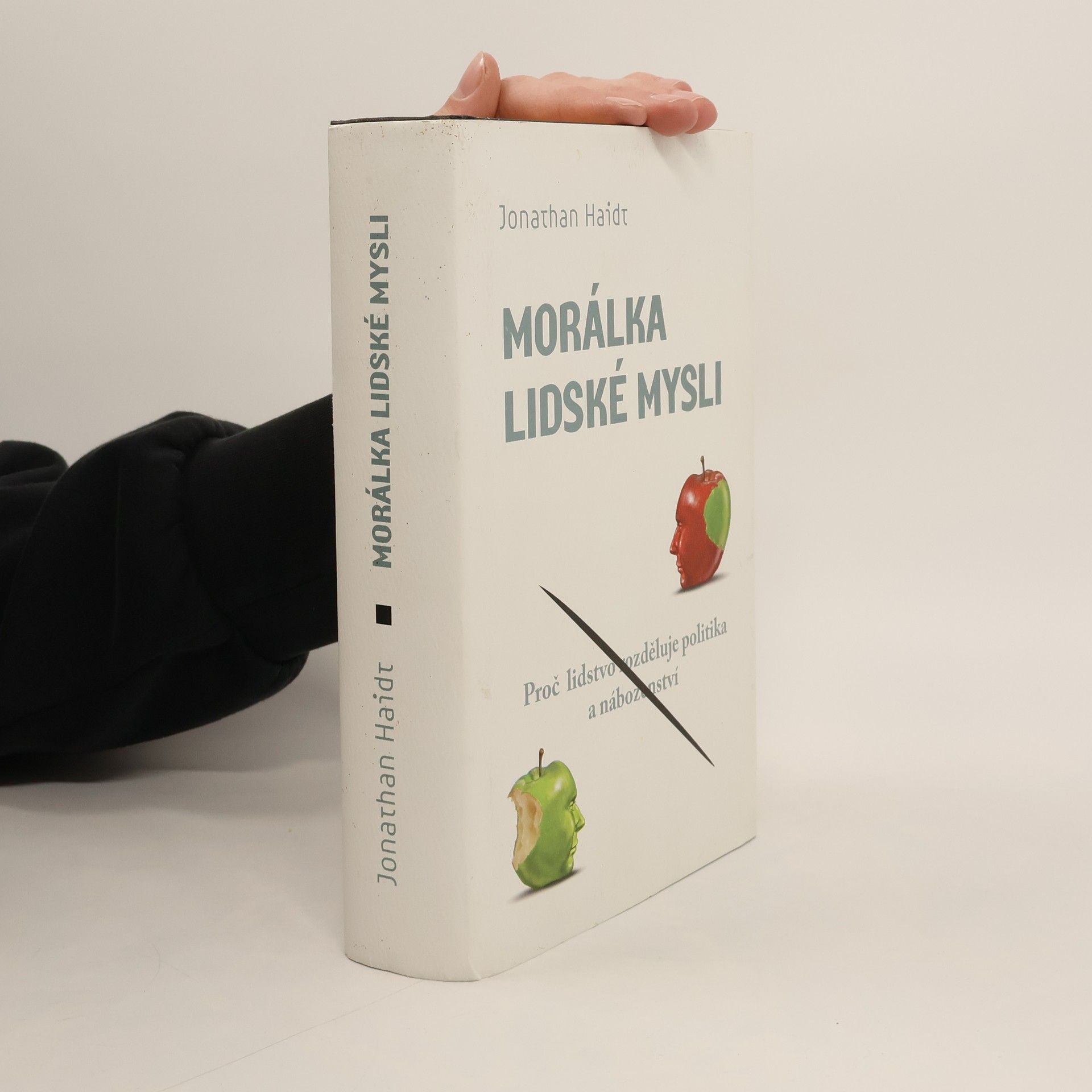Sinn und Glück im Leben zu finden ist keine Glückssache – Sie können aktiv daran arbeiten! Jonathan Haidt zeigt, wie Sie Denken, Beziehungen und Arbeit als Quellen für persönliches Lebensglück nutzen können. Dieses Werk ist mehr als ein weiteres Buch mit einfachen Glücksrezepten. Der Autor schöpft aus einem reichen Wissensschatz und verbindet antike Weisheitslehren mit modernen Studien zur Glücksforschung. Er zieht Erkenntnisse von Historikern, Philosophen, Biologen, Psychologen und Gehirnforschern zusammen und vereint gründliche Recherche mit persönlichen Erfahrungen und praktischen Lebenshilfen. Haidt ist ein genialer Schreiber, der komplexe Themen verständlich macht und mit lebendigen Beispielen arbeitet. Seine Gedanken regen zum Nachdenken an und bieten Ideen, die das Leben verändern können. Spannend und oft humorvoll verfasst, lädt er dazu ein, das Buch in einem Zug zu lesen. Er erzählt von seinem Abenteuer, ein glückliches Leben zu gestalten, und führt auf die Suche nach dem Geheimnis des Glücks, dessen Wurzeln und Facetten. Kommt Glück von außen oder innen? Ist es moralisches Verhalten oder hormonell bedingt? Haidt findet ausgewogene Urteile und inspiriert zu einer neuen Sicht auf das eigene Leben. Ein tiefgründiges Buch, das beim Lesen Glücksgefühle weckt.
Jonathan Haidt Bücher
Jonathan Haidt ist ein renommierter Psychologe und Professor, dessen Forschung sich auf die Moralpsychologie konzentriert. Er untersucht die grundlegende Natur der Moral, die Gründe für politische und religiöse Spaltungen sowie das fortwährende Streben nach Weisheit. Seine Arbeit zielt darauf ab, alte philosophische Erkenntnisse mit dem zeitgenössischen Verständnis zu verbinden und beleuchtet menschliches Verhalten und gesellschaftliche Dynamiken.







Drei technische Megatrends bestimmten die Nullerjahre: das iPhone, hyperviralisierte Social-Media-Plattformen und die Selfie-Kultur. Das Ergebnis: Eine ganze Generation von Kindern und Jugendlichen verwandte mehrere Stunden am Tag darauf, um durch die Beiträge von Influencer:innen und Jugendlichen zu scrollen, statt mit anderen Menschen zu spielen, zu sprechen oder Blickkontakt aufzunehmen. Die Mitglieder der Generation Z wurden damit zu Testpersonen für das Aufwachsen in einer durch die Sozialen Medien radikal umgestalteten Umgebung. Was sind die Folgen dieses Experiments, und wie können wir ihnen begegnen? Diesen Fragen widmet sich Jonathan Haidt in «Generation Angst». Sein Buch richtet sich an alle, die verstehen wollen, wie die schnellste und allumfassendste Neuverdrahtung menschlicher Beziehungen es uns allen erschwert, klar zu denken, uns zu konzentrieren, uns um andere zu kümmern und enge Bindungen einzugehen. Es ist auch ein Buch darüber, wie wir ein menschliches Leben für unsere Kinder und für die Menschheit zurückgewinnen können.
Generation Angst
Wie wir unsere Kinder an die virtuelle Welt verlieren und ihre psychische Gesundheit aufs Spiel setzen
- 448 Seiten
- 16 Lesestunden
Die Taschenbuch-Ausgabe des Spiegel-Bestsellers Drei mediale Megatrends bestimmten die frühen 2010er-Jahre: Smartphones, Social-Media-Plattformen und die Selfie-Kultur. Das Ergebnis: Eine ganze Generation von Kindern und Jugendlichen verwendete mehrere Stunden am Tag darauf, durch die Beiträge von Influencer:innen und mehr oder weniger fremden Nutzer:innen zu scrollen, statt sich mit Menschen in ihrem unmittelbaren Umfeld auseinanderzusetzen. Die Mitglieder der Generation Z, die als Erste ihre Pubertät mit den neuen Medien in der Tasche durchlebten, wurden so zu Testpersonen für das Aufwachsen in einer radikal umgestalteten, zunehmend digitalen Umgebung. Die Folgen dieses Experiments waren, wie Jonathan Haidt auf Grundlage umfangreichen Datenmaterials zeigt, katastrophal – und sie betreffen auch die heute Heranwachsenden. Die schnellste und allumfassendste Neuverdrahtung menschlicher Beziehungen führte dazu, dass sich die mentale Gesundheit der Kinder und Jugendlichen rapide und dauerhaft verschlechtert hat. Dieser Entwicklung müssen wir jetzt entgegentreten: Haidt erklärt, was Regierungen, Schulen und Eltern tun können, um Kindern ein gesundes Aufwachsen zu ermöglichen.
A must-read for all parents, this generation-defining investigation delves into the alarming decline of youth mental health amid the rise of smartphones, social media, and big tech. After years of stability, adolescent mental health plummeted in the early 2010s, with significant increases in depression, anxiety, self-harm, and suicide rates. Social psychologist Jonathan Haidt explores the epidemic of teen mental illness affecting many countries, examining the vital role of play and independent exploration in childhood development. He traces the decline of the “play-based childhood” since the 1980s and its replacement by the “phone-based childhood” of the 2010s. Haidt identifies over a dozen ways this shift has disrupted children's social and neurological growth, including sleep deprivation, attention fragmentation, addiction, and social comparison. He highlights the unique vulnerabilities of girls to social media and the alarming trend of boys retreating into virtual worlds. Most importantly, Haidt calls for action, outlining four simple rules to combat these issues and proposing steps for parents, educators, tech companies, and governments to help end the mental health crisis and foster a healthier childhood. His insights are vital for safeguarding the well-being of future generations.
NEW YORK TIMES BESTSELLER • The #1 bestselling author of The Anxious Generation and acclaimed social psychologist challenges conventional thinking about morality, politics, and religion in a way that speaks to conservatives and liberals alike—a “landmark contribution to humanity’s understanding of itself” (The New York Times Book Review). Drawing on his twenty-five years of groundbreaking research on moral psychology, Jonathan Haidt shows how moral judgments arise not from reason but from gut feelings. He shows why liberals, conservatives, and libertarians have such different intuitions about right and wrong, and he shows why each side is actually right about many of its central concerns. In this subtle yet accessible book, Haidt gives you the key to understanding the miracle of human cooperation, as well as the curse of our eternal divisions and conflicts. If you’re ready to trade in anger for understanding, read The Righteous Mind.
Three bad ideas. The untruth of fragility : what doesn't kill you makes you weaker ; The untruth of emotional reasoning : always trust your feelings ; The untruth of us versus them : life is a battle between good people and evil people -- Bad ideas in action. Intimidation and violence ; Witch hunts -- How did we get here? The polarization cycle ; Anxiety and depression ; Paranoid parenting ; The decline of play ; The bureaucracy of safetyism ; The quest for justice -- Wising up. Wiser kids ; Wiser universities ; Wiser societies.
The Righteous Mind
- 528 Seiten
- 19 Lesestunden
Why can it sometimes feel as though half the population is living in a different moral universe? Why do ideas such as 'fairness' and 'freedom' mean such different things to different people? And why do political views which conflict with our own often seem illogical? Social psychologist Jonathan Haidt reveals how the conflict, self-righteousness and hypocrisy that can make it so hard for us to get along are actually the natural expression of our moral minds. Drawing on twenty-five years of groundbreaking research, Haidt shows how moral judgments arise not from reason but from intuition, and why we evolved to be this way. Morality binds and blinds, but this book will help you to see and understand your friends, enemies and fellow citizens as never before. 'If you want to know why you hold your moral beliefs and why many people disagree with you, read this book.' Simon Baron-Cohen, author of The Essential Difference 'A truly seminal book.' David Goodhart, Prospect 'A tour de force - brave, brilliant, and eloquent. It will challenge the way you think about liberals and conservatives, atheism and religion, good and evil.' Paul Bloom, author of How Pleasure Works 'Compelling . . . a fluid combination of erudition and entertainment.' Ian Birrell, Observer 'Lucid and thought-provoking . . . deserves to be widely read.' Jenni Russell, Sunday Times
"A timely deep dive into cancel culture, an account of its dangers to all Americans, and the much-needed antidote from the team that brought you Coddling of the American Mind ... [Includes] hard data and research on what cancel culture is and how it works, along with hundreds of new examples showing the left and the right both working to silence their enemies ...Offers concrete steps toward reclaiming a free speech culture, with materials specifically tailored for parents, teachers, business leaders, and everyone who uses social media"
Morálka lidské mysli : proč lidstvo rozděluje politika a náboženství
- 480 Seiten
- 17 Lesestunden
Proč existují rozdíly v lidském jednání a rozhodování? Jakou roli hraje morálka v našem uvažování? Tyto otázky zkoumá psycholog Jonathan Haidt. Analyzuje teorie starých filozofů a dospívá k současným debatám o původu morálky: je vrozená, nebo formována zkušenostmi z dětství? Pokud je vrozená, proč se názory na morální témata liší napříč kulturami? A pokud je získaná, jak to, že lze nalézt opakující se vzorce? Haidt tvrdí, že naše morální úsudky vycházejí z intuice, zatímco rozumové uvažování slouží k obhajobě těchto intuic. Jsme tedy spíše „intuitivní právníci“, kteří hledají argumenty pro své názory. Haidtovo vyprávění je obohaceno osobními příběhy, jako je jeho dětství, které ho nasměrovalo k levici, a studijní pobyt v Indii, jenž ho přiměl přehodnotit své názory. Popisuje pět základů morálky a ukazuje, proč sympatizanti levice kladou důraz na dva z nich, zatímco pravice se opírá o všechny. Tím odhaluje nedorozumění, která z toho vyplývají. Dokáže tato kniha zúžit propast mezi individualistickými a sociocentrickými společnostmi a mezi politickou levicí a pravicí?



